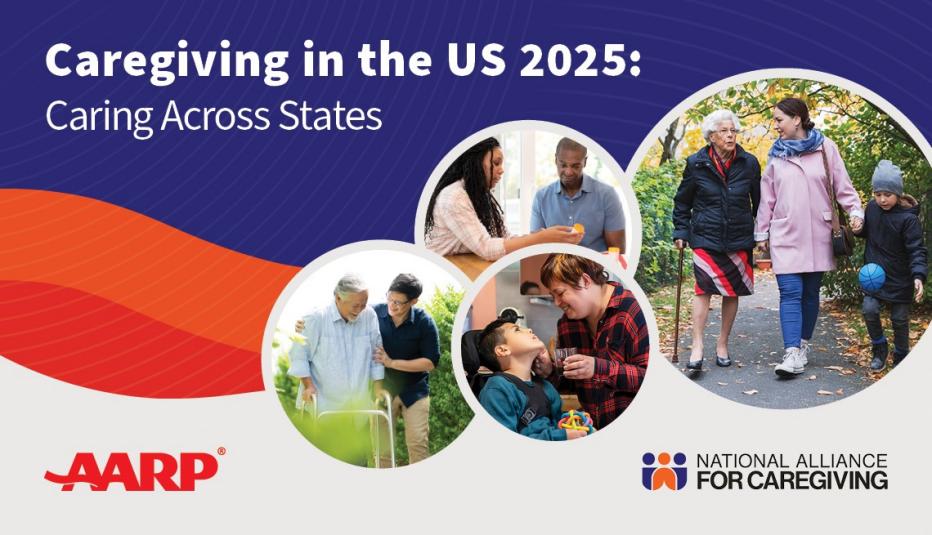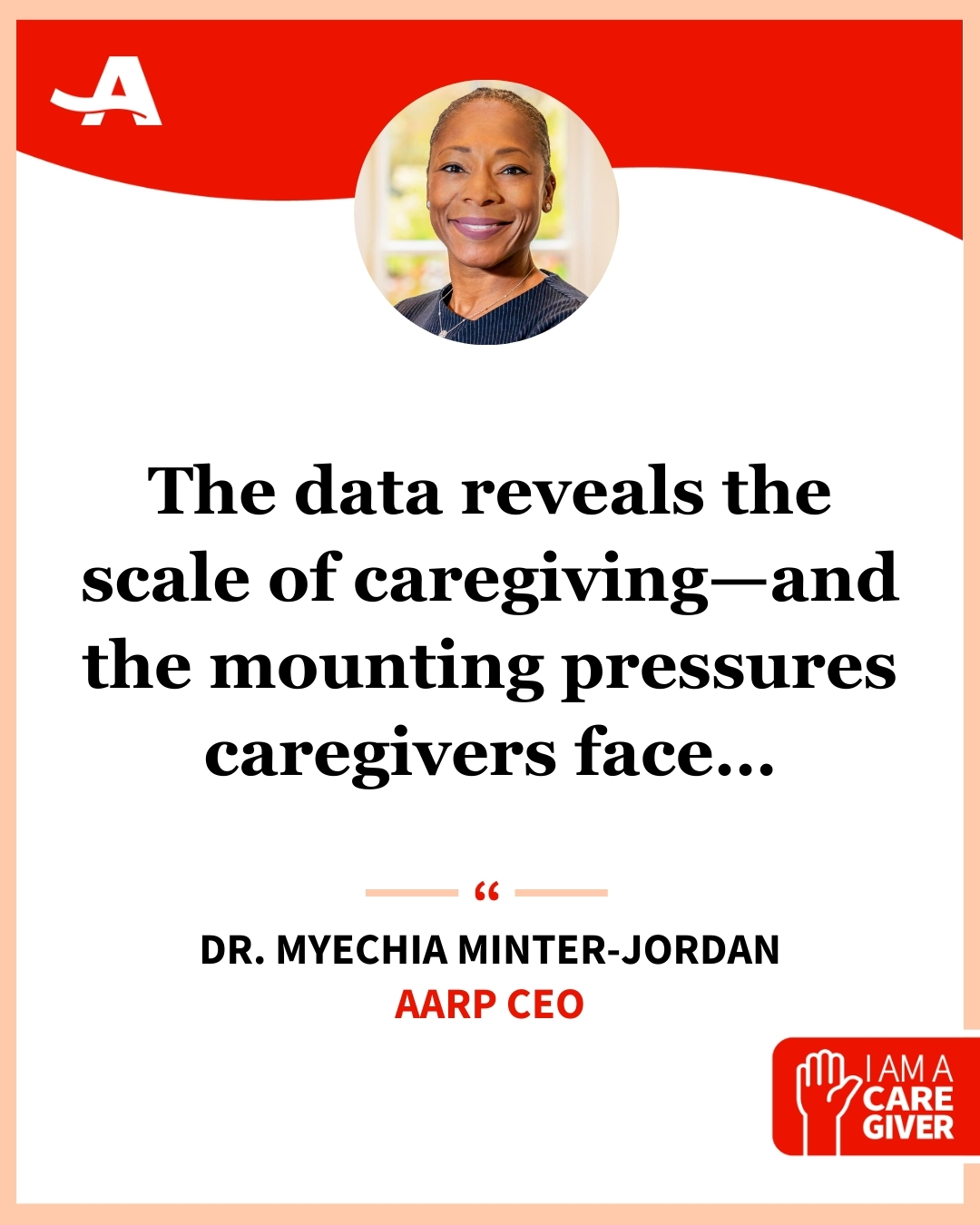AARP Hearing Center

AARP calls on state and federal policymakers to take action to support them
RALEIGH -- November is National Family Caregivers Month, a chance to recognize the 63 million Americans who help their older parents, spouses and other loved ones live independently in their homes and communities – where they want to be.
A new AARP survey Caregiving in the US 2025; Caring Across States shows there are 2.38 million family caregivers here in North Carolina alone. They represent 27 percent of the state’s adult population. The data AARP released provides the clearest picture yet of who caregivers are in North Carolina.
AARP North Carolina Director Mike Olender explains, “Family caregivers take on everything, from grocery shopping and driving loved ones to doctor appointments to meal prep and managing medications. They also help with more intense responsibilities like bathing and dressing and handling medical tasks, often with little or no training.”
In North Carolina and elsewhere, family caregivers hold up a broken long-term care system. Previous AARP research shows the state’s caregivers provide 1.15 billion hours of care every year. This adds up to over $16 billion in unpaid labor annually. Without them, many older North Carolinians would be forced into costly nursing homes, with taxpayers footing the bill.
The survey uncovered some alarming findings about the financial strain family caregivers in North Carolina are facing.
Olender said, “Over half of family caregivers (54%) in North Carolina have experienced at least one negative financial impact because of their care responsibilities. Common negative impacts include stopping or draining savings, taking on more debt, or leaving bills unpaid.”
Other North Carolina survey findings include:
· Six-in ten family caregivers work while also caregiving (58%).
· Over a quarter, (27%) of caregivers spend at least 40 hours a week providing care or provide constant care.
· Over half of family caregivers (56%) help with medical and nursing tasks.
· Three-in-ten family caregivers (31%) have difficulty getting affordable local services such as delivered meals, transportation, or in-home health services.

The challenges of caregiving are often accompanied by stress which can take a big toll. Becky Claxton of Raleigh was taking care of her 94-year-old mother before she passed away in 2024. At the same time, she was caring for her husband who was suffering from severe back pain and sciatica.
Becky explains, “My mother was living with dementia. She accused me of stealing from her and made-up things about me. She could be extremely stubborn and wouldn’t listen to me. I was 70 and my own health was affected. However, I could never put her in a nursing home but she only had me to care for her,” she said.
Jo Hunt of Charlotte talks about her caregiving journey. "So many caregivers are going at it alone, are overwhelmed, and under supported. In caring for my husband, who was diagnosed with early onset Parkinson's disease at 40, I juggle activities of daily life for myself but also for him. Working outside the home and all of the additional medical care is stressful but I have come to realize that my own wellbeing is a necessity."
North Carolina findings from Caregiving in the US 2025 are part of the national survey conducted by AARP and the National Alliance for Caregiving (NAC). It provides a detailed look at the experiences, challenges, and needs of family caregivers across the country.
The study estimates how many people are providing care and explores what that experience looks like—who caregivers are, what kinds of care they provide, and how it affects their lives.
The study comes out every five years and helps health professionals, policymakers, researchers, and families understand how caregiving is changing over time. Because the last two surveys were in 2015 and 2020, the 2025 data give the clearest view yet of how caregiving has evolved.































































